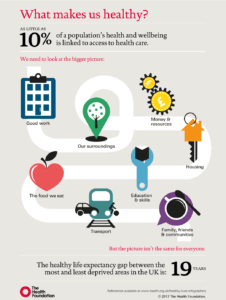Guest Post By Izabella Taraszewski, Compassion Connect Intern Summer 2020
Through my journey into the pursuit of global public health equity, I have been challenged and amazed every day in the knowledge I learn, and the ways I discover I can use my resources as a tool and a voice for those who do not have the same access. I grew up with impeccable health care, and no matter where I travel in the world I have never been worried that in an emergency, I could get medical treatment and it would be covered. Those words hold a momentous weight for me. Every day there are neighbors in communities like yours and mine that have extremely minimal, or even zero, access to quality healthcare.
Through outreach work with Burmese migrants in Thailand seeking accessible health care, to clinic work in underserved areas of Cincinnati, to work with food insecurity, and now my internship with Compassion Connect, I have found that it is my honor and privilege to contribute to the global health equity field. But in order to make a meaningful contribution, and help others to do so, I must accept that I can never know enough. This issue may sound too large to undertake, but we all can start somewhere.
As someone with the privilege of accessible healthcare, what is the first step that you can take in fighting for global public health equity? Although the first step in this vast crusade is easily achieved, it is not simple in its consequence. The first, and presumably most crucial step in this effort is educating ourselves and others. More specifically, understanding the social determinants of health and the role they play in healthcare inequity. The social determinants of health are the social and economic conditions that influence one’s health status. They not only shape people’s health but are the basis for healthcare inequities, which are the unfair distribution of varying health resources between different population groups. Notably, these inequities arise from the social determinants of health.
Although there are countless insights to gain from a deeper understanding of these topics, there are three especially important things we can learn.
- Firstly, glaring healthcare inequities are illuminated when we may not have noticed them before.
- Secondly, this understanding can equip us to make conscientious and long-lasting change for those who are most vulnerable.
- Third, we can more easily see how vital organizations like Compassion Connect are in our community.
The social determinants of health are:
- Economic status
- Neighborhood and physical environment
- Education
- Food
- Community/social context
- Healthcare system
All of these factors must be taken into consideration to impact real change and achieve an accessible healthcare system. But before delving deeper into some real-life context and how these determinants can affect our decisions and communities, it is useful to understand what key issues each determinant reflects.
“Creating a sustainable relationship with our most vulnerable communities and their members necessitates that we do our best to listen to them. In a world where many of the organizations fighting for change are not necessarily joined in their efforts, it is up to us to understand the unique needs of each community.”
Economic stability includes factors such as employment, housing, food access, and overall socioeconomic status. Neighborhood and physical environment pertain to access to healthy food, crime rate and violence, quality of housing, and environmental conditions. Education includes language and literacy, early childhood development conditions, completion of high school, and enrollment in higher education. In the community and social context category there is discrimination, incarceration, social cohesion, and civic participation. And finally there is the healthcare system. This category includes access to both health care and primary health care, as well as health literacy.
Another important factor to note is that regardless of whether or not you are insured on paper, it is still a challenge to obtain medical care. There are a myriad of factors that can account for this, some including: difficulty navigating the system, insurance not being accepted by certain providers, being unable to take off work or obtain childcare to make it to an appointment, lacking transportation, not being able to afford a copay, and the list goes on and on. These factors are important considerations in creating health options that have the lowest barriers possible.
The Social Determinants in Action: A Case Study on Nutrition
In many areas of the globe it is easy to see how the social determinants of health affect people’s access to basic necessities, emergency medical care, and overall health. An issue growing increasingly familiar both in developing countries as well as the United States is nutrition. It is said that with our current food supply we could feed up to 10.5 billion people, but 800 million people go to bed hungry and 2 billion go to bed malnourished (Hyman, M., (2020). Food Fix. Little, Brown Spark.).
“These social determinants are the foundation of a person’s health, but by changing these we can create a system which relies on preventative care as opposed to the system we see today which relies on reactionary care after someone is already exhibiting symptoms.”
Aside from the fact that our food system has momentous effects on the health of our environment, food also plays a huge role in chronic disease. With the current nature of our system, food insecurity, obesity, and malnutrition occur all in the same population. The policies and production methods involved in the agricultural industry and food system promote unhealthy foods, which leads to a population that not only over-consumes, but is ironically malnourished.
Related Post- A Space That Makes Room for Everyone: Stories from the Compassion Clinics
Despite the fact that people are rarely blamed for having an infectious disease, the burden of chronic disease (cardiovascular disease, diabetes, obesity, cancer, stroke, etc) that results from these factors are placed heavily on the individual. We often think that it is the individual’s fault, but the social determinants of health show us that we have to examine a full range of factors to truly understand the root of the disease.
It Takes A Village to Transform Healthcare Inequities
These social determinants are the foundation of a person’s health, but by changing these we can create a system which relies on preventative care as opposed to the system we see today which relies on reactionary (or curative) care after someone is already exhibiting symptoms. This preventative effort relies on more than just healthcare providers. It relies on the teamwork between primary care providers, community health workers, policy makers, and community members to create and educate communities that can close health inequity gaps and fight to provide a voice for those who are marginalized in our world.
It is not only important to create a dialogue about this topic with others, but to use this information to create conscientious change. Creating a sustainable relationship with our most vulnerable communities and their members necessitates that we do our best to listen to them. In a world where many of the organizations fighting for change are not necessarily joined in their efforts, it is up to us to understand the unique needs of each community. Rather than stepping in and determining what they need ourselves, it is important that we remain in the middle to provide them with the information and resources they need to succeed.
This is where Compassion Connect comes in. Armed with knowledge directly from the communities they serve, Compassion Connect provides a multi-faceted approach to impacting change through the relationships they create with churches and their communities. Led by their core values and mobilized by passionate volunteers, Compassion Connect aims to better community health, prevent and restore communities affected by human trafficking, and provide other avenues for leadership in their neighborhoods. Aside from attacking healthcare disparity head on through things like Compassion Clinic events, Compassion Connect utilizes fostered community relationships and the helping hand of God to effect change in deep-rooted systemic issues that prevent people from accessing health care.
-Izabella Taraszewski
Additional Resources:
- Beyond Health Care: The Role of Social Determinants in Promoting Health and Global Equity
- The CDC: Social Determinants
- A document of case studies related to the social determinants of health published by the WHO



